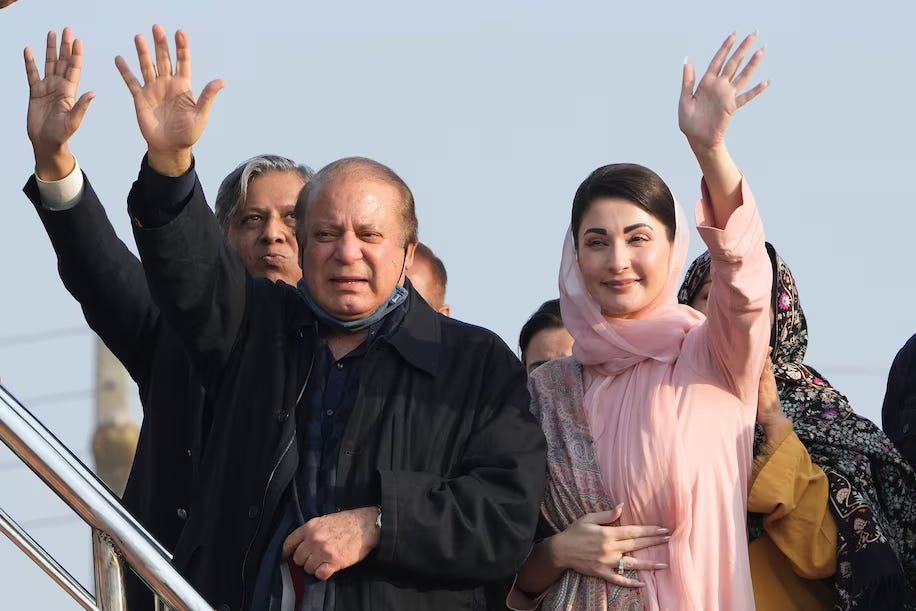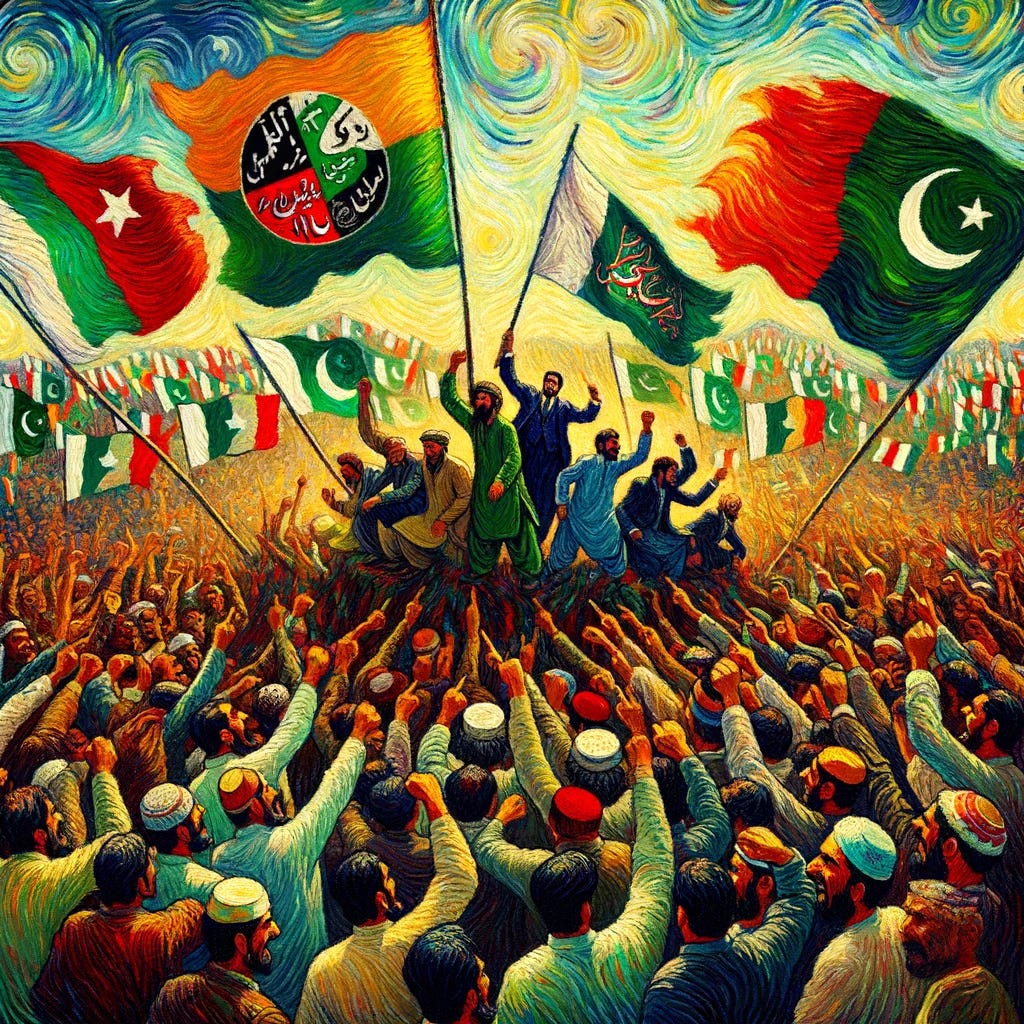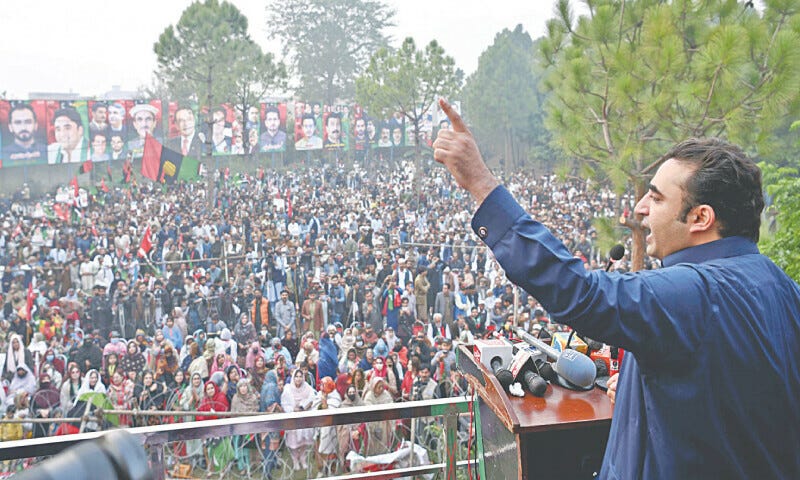Two Cheers for Democracy in Pakistan!
As India's cantankerous neighbour goes to poll today, India can wish the best for its democracy, while keeping a close watch on the unfolding situation.

Two Cheers for Democracy in Pakistan!
India observes with caution as its cantankerous neighbour, Pakistan—a nuclear power—wades through its 12th General Election, casting shadows over the democratic hopes many had harbored. This succinct analysis explores the intricacies of Pakistan's electoral process, leading up to the national polling and vote counting taking place today. It contrasts the ideal of democratic spirit with the harsh realities of political maneuvering, including the significant influence of its Military Establishment, and external pressures. This piece offers a neigbour’s-eye view of the challenges faced by it in achieving genuine democratic governance. In Pakistan, the political landscape is predominantly male-dominated, with three major parties at the forefront: the Pakistan Muslim League-Nawaz (PML-N), Pakistan People’s Party (PPP), and the Pakistan Tehreek-e-Insaf (PTI) (sans the election symbol), and the each playing a pivotal role in shaping the country's political dynamics.
Democracy or Autocracy in Disguise?
The Electoral Skepticism
Pakistan's electoral process is mired in widespread skepticism, with a large portion of its 12.7 crore electorate questioning the integrity of the elections. The incarceration—marked by stiff prison sentences based on questionable charges and expedited trials—of Imran Khan, the former Prime Minister and a significant political figure, has intensified the debate regarding the essence of democracy in Pakistan. Critics contend that the electoral process appears more akin to a "General's Selection" rather than a genuine General Election, casting doubts on the democratic legitimacy of the proceedings.
Even as the polling began, the interim-Government ordered the complete shutdown of the mobile internet throughout the country, ostensibly to maintain law and order and prevent spread of fake news and rumours. This creates further doubts regarding the fairness and transparency of the polling, as the media’s capacity to broadcast events real-time would be greatly impaired.
Analyzing Pakistan's Electoral Dynamics
A retired Punjab cadre IAS officer, with a deep interest in Pakistani politics, observed: "In Pakistan, it's the General that calls the shots (pun intended)." He highlighted the competition for the 266 elective seats in the National Assembly, projecting that Nawaz Sharif’s PML-N is poised to secure between 110-115 seats. The PPP is expected to clinch about 55-60 seats, while Imran Khan’s Independent (PTI) candidates—the Party having been stripped of its election symbol—are estimated to garner around 40-45 seats. He suggested that a surge in polling could hint at an undercurrent favoring PTI, particularly due to increased youth participation, but he doubted the party's tally would surpass 50 seats.
Strategic Relevance and Regional Stability
A Precarious Balancing Act
Pakistan's geopolitical standing seems to be diminishing in the wake of the Taliban's resurgence in Afghanistan, affecting its strategic importance to long-standing allies such as the United States. The challenge of managing the influx of Afghan refugees—coupled with the current frentic efforts for their expulsion—and tackling the threats from domestic militant factions, including local Taliban offshoots, underscores the precarious and inherently unstable equilibrium Pakistan strives to maintain. Additionally, rising tensions with Iran and ongoing disputes with India over Jammu & Kashmir further highlight the region's fraught dynamics.
The Military's Pervasive Influence
An Army's Nation
The saying "Most States have an army; in Pakistan, the Army has a state" resonates deeply in the context of the recent elections. The military's influence in Pakistan's political affairs is an open secret, with its role in governance and policy-making casting a long shadow over the electoral process and beyond. This deep-seated military involvement raises questions about the autonomy of elected officials and the prospects for a responsible and responsive civilian rule.
The Path Forward for India-Pakistan Relations
Cautious Engagement and Vigilance
While the outcome of Pakistan's election might appear predetermined, the Indian establishment is tasked with maintaining peaceful coexistence with its cantankerous neighbor, especially regarding the contentious issue of Jammu & Kashmir. India, under the dynamic leadership of PM Modi, of course, remains unwavering in its stance that the entirety of J&K, including PoK, is an integral part of the nation. Amidst growing internal dissent in Pakistan, notably in Balochistan, India's strategy should continue to focus on fostering stability and peace within South Asia. Nonetheless, India must approach its dealings with Pakistan's military establishment with caution, bearing in mind the lessons from the Kargil conflict, even as it pursues peace initiatives, such as those symbolized by the Lahore Bus diplomacy under PM Vajpayee. Adhering to the principle of "Trust but verify," as advised by a US President, India should balance vigilance with diplomatic engagement, ensuring a nuanced approach to its relations with Pakistan.
Summing Up: Two Cheers for Democracy in Pakistan!
In conclusion, Pakistan's electoral journey, while marking a step towards embracing democratic norms, is still overshadowed by significant challenges such as military dominance, regional instability, and widespread political skepticism. It is universally acknowledged that an unending military rule, devoid of electoral prospects, is markedly inferior to even the most flawed electoral exercise, especially in an era dominated by the internet and social media.
For India, the results of Pakistan's elections call for a strategy of cautious yet calculated engagement, reinforced by an unwavering dedication to fostering regional peace and stability. As both countries navigate their paths, the intricate interplay of democracy in South Asia continues to unfold, highlighting the fine line between aspirations and the tangible quest for governance that genuinely mirrors the populace's will.
At this juncture, we can only remark:
"Two Cheers for Pak Democracy!"






